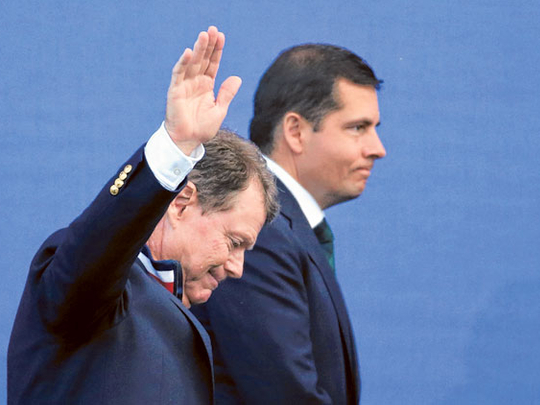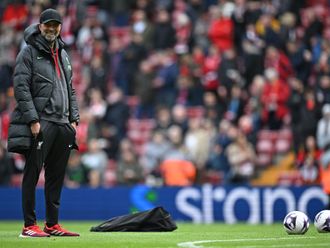
Gleneagles, Scotland: The United States were once again left scratching their heads after losing the Ryder Cup to Europe for the eighth time in ten years on Sunday, the killer blow being their poor display in the foursomes.
While the three US rookies gave their team a major boost with inspired play over the three days of competition, the American struggled in the alternate-shot format where they were outplayed 7-1 by hosts Europe over the two sessions.
US captain Tom Watson was widely panned for his decision to rest in-form rookies Patrick Reed and Jordan Spieth from the opening foursomes and Phil Mickelson felt the team missed a trick by not trying to replicate their winning recipe from 2008.
“We had a great formula in ‘08 and I don’t know why we have strayed from it,” American left-hander Mickelson, a veteran of 10 Ryder Cups, told Golf Channel on Sunday after Europe had retained the trophy.
“I don’t know why we don’t ever try going back to it. What Zinger [Paul Azinger] did was really a good format and maybe we ought to relive something like that.”
Six years ago, Azinger’s imaginative captaincy paved the way for a first US Ryder Cup victory since 1999 after he revamped the selection process to give him the hottest players and switched the opening Cup session from fourballs to foursomes.
However, his most successful ploy was implementing a ‘pod’ system whereby his team was split into four groups of three players who gelled superbly that week at Valhalla after practising and playing together.
Watson, who was also captain when the US last won the Ryder Cup on foreign soil in 1993, singled out the woeful display by the Americans in the foursomes as the decisive factor this week at Gleneagles.
“The combined scores for our team in foursomes were really, really high compared to theirs,” the 65-year-old told NBC Sports. “That was the biggest difference in the play this week.
“We gave them a shot here in the singles. We made them [Europe] think about us early on in the singles and then they turned it on. But the foursomes play is what separated the two teams.”
Dumbfounded
Cup veteran Jim Furyk, beaten one-up by Spaniard Sergio Garcia in the singles, was dumbfounded by Europe’s dominance in the foursomes at Gleneagles.
“I always feel like that’s a format that we have been very strong at and where we’ve done really well in the past,” said Furyk, 44, after Europe won the 40th Ryder Cup by 16-1/2 points to 11-1/2.
“Here we went out and won the fourballs 5-3 and got decimated 7-1 in the foursomes. All in all, it was too much to come back from. I felt like we had a lot of guys that could play well in that format.”
American Lanny Wadkins, a steely competitor who played in eight Ryder Cups between 1977 and 1993 for an impressive overall record of 20-11-3, agreed.
“More than anything else, the poor play by the Americans yesterday afternoon [in the foursomes] almost sealed their fate,” Wadkins told Golf Channel.
“For any chance today, the United States had to have Jordan Spieth and Hunter Mahan get it done with those matches when they were three and four up… and they didn’t get it done.”
Asked by NBC Sports to give his verdict on the 40th Ryder Cup, twice former major winner Johnny Miller said: “The Europeans are just better on the back nine, bottom line.
“But the real killer was the foursomes. The fourballs were 5-3 and the singles were 5-1/2 to 6-1/2. It was pretty close except for the [foursomes] afternoon on Friday and the [foursomes] afternoon on Saturday.
“As far as why it happened, I don’t know. Maybe you look at the three top-ranked Americans this week — Furyk, [Bubba] Watson and [Matt] Kuchar were 2-9-0. That really hurts.”
The Americans can, however, draw hope for the future from the brilliant form shown at Gleneagles by their rookies — Spieth (2 1/2 points), Patrick Reed (3 1/2) and Jimmy Walker (2 1/2) who headed the US points standings.
“They scored eight-and-a-half points for our team, and that bodes well for the future of the American Ryder Cup team,” Watson said.








